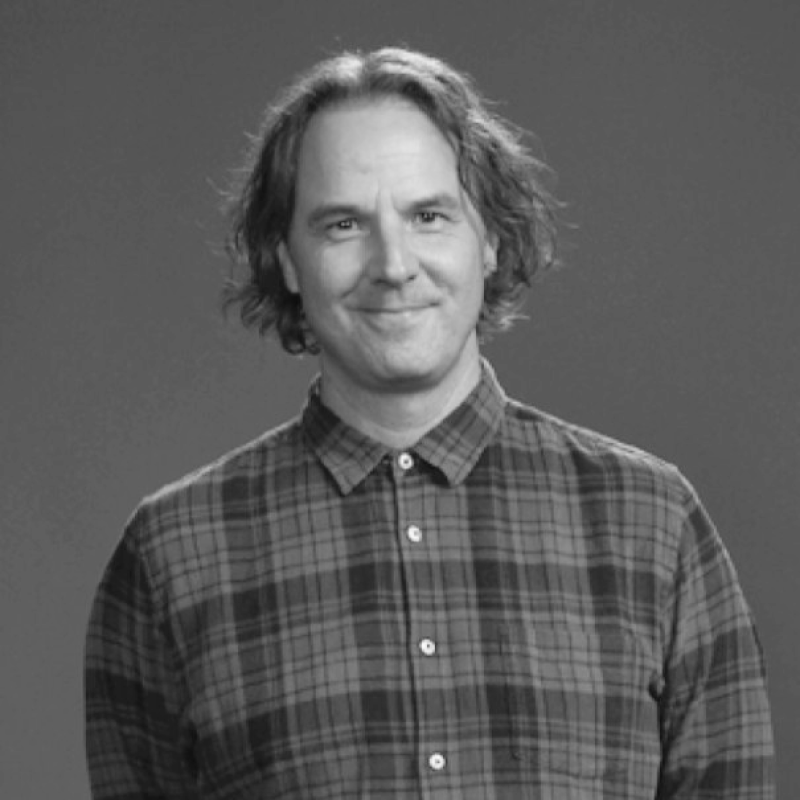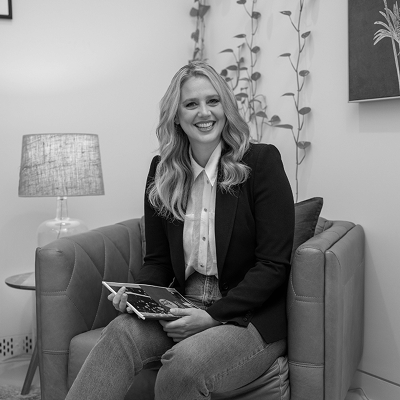
ASKING FOR A FRIEND
I’m burnt out and want to take a work break, but worried what it will look like on my resume. Do you have any advice?
ASKING FOR A FRIEND - QUESTION
When burnout hits hard and you're considering stepping away from work, the fear of how it might look on your resume can be paralysing. Creative Director Lindsay Thompson, with almost 20 years in the industry and mental health advocacy experience, shares practical strategies for turning career breaks into strengths. Psychologist Tara Hurster, founder of The TARA Clinic, offers insights on making time off meaningful and explores alternative pathways like government-supported business ventures. Host Andy Wright, CEO of Streamtime, guides this honest conversation about prioritising wellbeing over career optics. Discover why taking a work break might be exactly what your creative career needs.
The Art of Stepping Away: Why Taking a Career Break Might Be Your Best Move
The creative industry has a complicated relationship with rest. We're taught that passion should fuel us endlessly, that taking time off signals weakness or lack of commitment. But what happens when that passion starts to feel more like a burden? When the work you once loved becomes a source of dread, and your confidence begins to crumble under the weight of prolonged burnout?
The question of whether to take a work break when you're burnt out and want to take a work break, but worried what it will look like on your resume is one that many creatives wrestle with in silence. It's a deeply personal decision that sits at the intersection of mental health, career strategy, and financial reality.
This question was answered by Lindsay Thompson, an accomplished Creative Director from Queensland with almost 20 years in the industry and a mental health advocate who led the Queensland Government's Dear Mind campaign. Tara Hurster, a psychologist and founder of The TARA Clinic, brought her expertise in supporting successful people to regain control over substance use and addiction while addressing underlying mental health challenges. Andy Wright, host and CEO of Streamtime, facilitated the discussion with his deep understanding of creative industry pressures and wellbeing.
Come Prepared with Your Story
The fear about how a work break might affect hiring decisions is understandable, but Lindsay offers a refreshing perspective. "I'm not an employment expert, so I don't know is the answer because I guess it would depend on whether or not a manager sees it as an issue," he admits honestly. However, his advice is practical and empowering.
"Come prepared with the evidence," Lindsay suggests. "So I took 12 months off, I just had like a moment for myself, right? What did I gain from this 12 months off? What have I learned about myself? What have I learned about the industry? What have I learned about new ways of being creative?"
This approach transforms a potential weakness into a strength. Rather than apologising for taking time off, you're demonstrating self-awareness, growth, and intentional career development. Lindsay emphasises that interviews work both ways: "An interview is not just about you being interviewed, you're also interviewing the organisation to see whether or not it's a place that you want to be."
The Power of Presence During Your Break
Taking time off is one thing, but making it meaningful is another. Tara introduces a crucial concept about how to make a work break productive and worthwhile: presence. "If you go into a holiday because you're going into a holiday and you're not really present, you end up looking at when we're leaving, so the holiday goes really quickly," she explains.
The key is implementing "presentness or presence to your holidays or your breaks or your time off." This means fully inhabiting each moment rather than constantly thinking about when you'll return to work. As Tara beautifully puts it: "What are we now? We're 1:10 pm on Thursday the 2nd of December, right now here I am with you guys, with the people who are listening, and this is where I'm at."
This mindful approach to time off ensures you actually get something meaningful from your break rather than just marking time until you return to the same patterns that led to burnout.
Small Steps Can Make Big Differences
Lindsay offers hope for those who feel they can't take extended time off: "I think we've found out that we're all susceptible to that breaking point, no matter how much we steel ourselves to it." His solution involves finding micro-moments of restoration within your existing routine.
"I'm getting up a quarter of an hour earlier in the morning and sitting outside and watching the birds leave the tree, or throwing the AirPods in and going on to three free mindfulness minutes," Lindsay shares. "That quarter of an hour waking up in the morning while everyone's still asleep... helps you just kind of ease into it and prep for your day."
This approach recognises that not everyone can take months off, but everyone can find small pockets of time for personal projects and mental restoration. "What can you do in a lunchtime? What can you do in traffic on the way to work?" Lindsay asks, encouraging a shift in perspective about when and how we can nurture our creativity.
Consider Alternative Pathways
Tara introduces an interesting option that many creatives might not know about: NEIS (New Enterprise Incentive Scheme). "NEIS stands for New Enterprise Incentive Scheme, incentive from the government that in some situations you can actually be paid to start your own business," she explains.
This programme provides mentoring, support, and education for new small businesses, and the legislation has recently changed to allow part-time participation. However, Tara emphasises the importance of financial preparation: "My recommendation is at least have six months worth of living expenses and six months worth of business running expenses saved up in cash money before you make that decision."
Finding Support Through NNC Circles
If you're struggling with burnout and considering a work break, you don't have to navigate this decision alone. Never Not Creative's Circles programme offers peer support groups specifically designed for creatives facing mental health challenges. These monthly sessions provide a safe, confidential space to share experiences with other creatives who understand the unique pressures of our industry.
Circles connect you with 8-10 other creatives in your time zone, offering both mental health education and practical support. The programme requires a six-month commitment, creating a stable support network during what might be a challenging period of career transition. You can learn more about Circles and register your interest here.
When to Seek Professional Help
While peer support and self-care strategies are valuable, sometimes burnout requires professional intervention. If you're experiencing persistent feelings of hopelessness, anxiety that interferes with daily life, or thoughts of self-harm, it's important to reach out for professional support.
Never Not Creative provides comprehensive resources for finding help, including crisis support lines, counselling services, and mental health organisations across different countries. Remember, seeking professional help is a sign of strength, not weakness. You can find detailed support resources and contact information here.
The Manager's Perspective
Lindsay's final insight might be the most encouraging of all. Speaking from his experience as a Creative Director, he says: "If I saw someone come in and said that they've taken a six-month sabbatical because they wanted to explore Renaissance art in Eastern Europe, I'd go 'That's great, come and work for me,' because that means that person is committed to going beyond themselves in a passion and feeding their creative beyond these four walls that we get trapped in."
This perspective reframes taking a work break not as career suicide, but as evidence of someone who takes control of their wellbeing and continues to grow creatively even outside traditional work structures.
The decision to take a work break when you're burnt out is deeply personal and often scary. But remember that prioritising your mental health and creative wellbeing isn't just good for you, it's good for your future work and the industry as a whole. Whether you take a few months off, find micro-moments of restoration in your current routine, or explore alternative pathways like starting your own business, the key is being intentional about your choices and prepared to articulate the value of your decision. You're not alone in feeling this way, and taking time to restore yourself isn't a career-limiting move, it's often the foundation for your best work yet.
Meta description: Worried about taking a work break due to burnout? Learn how to make career gaps work for you and protect your mental health in the creative industry.
our guests
Industry Leader

Lindsay Thompson
Mental Health Expert

Tara Hurster
Host

